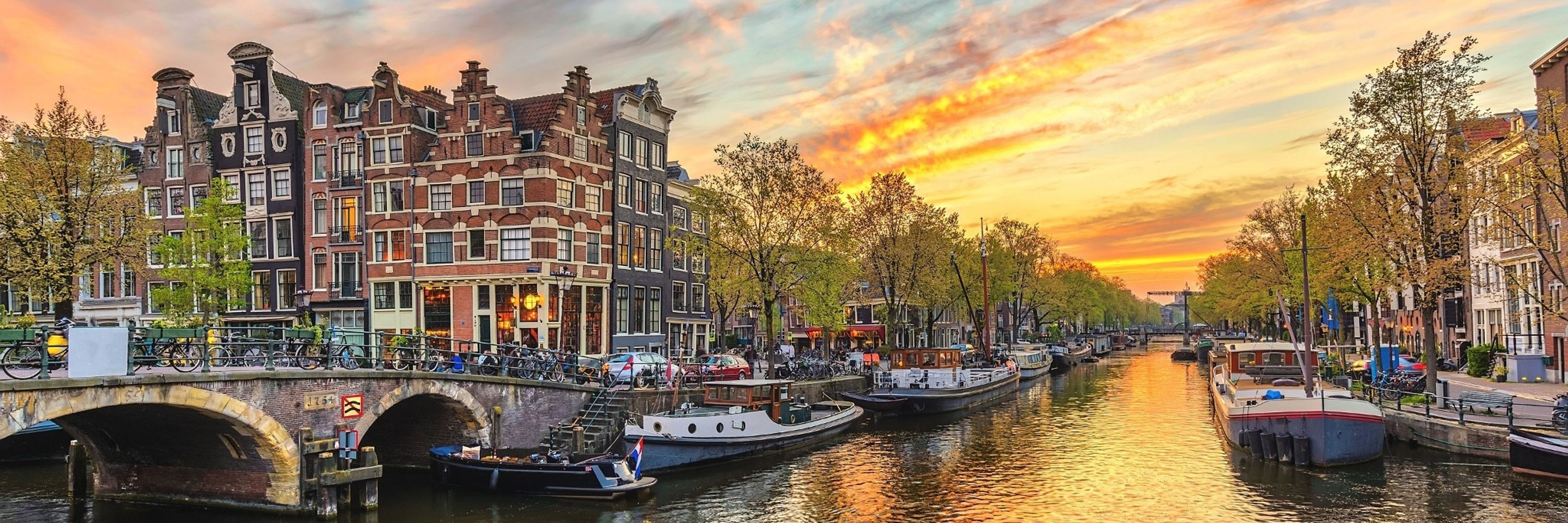
On average, their engagement was 28% and 20% lower, respectively.

On average, their engagement was 28% and 20% lower, respectively.


In a new preprint, @colognaviktoria.bsky.social, @maiensachis.bsky.social, @jmbh.bsky.social & I examine techno-optimism among 9,199 scientists and how it relates to their civic engagement and lifestyle choices🧵
🔗 Link: tinyurl.com/hh94huzv

In a new preprint, @colognaviktoria.bsky.social, @maiensachis.bsky.social, @jmbh.bsky.social & I examine techno-optimism among 9,199 scientists and how it relates to their civic engagement and lifestyle choices🧵
🔗 Link: tinyurl.com/hh94huzv
24 scholars, activists & practitioners met at a 5-day workshop to explore how to accelerate collective climate action.
Our summary report is out now ⤵️
🔗 tinyurl.com/cxxembyw
🔗 tinyurl.com/54rmhykx


24 scholars, activists & practitioners met at a 5-day workshop to explore how to accelerate collective climate action.
Our summary report is out now ⤵️
🔗 tinyurl.com/cxxembyw
🔗 tinyurl.com/54rmhykx

Risk perceptions do not seem to change differently for people with low or high resilience.

Risk perceptions do not seem to change differently for people with low or high resilience.
Importantly, people with hazard experience tend to view climate change as a very serious threat, not just a somewhat serious one!

Importantly, people with hazard experience tend to view climate change as a very serious threat, not just a somewhat serious one!


Using nationally representative survey data from 142 countries (N = 128,093), I find that people who have experienced a climate-related hazard are more likely to consider climate change a 𝘷𝘦𝘳𝘺 𝘴𝘦𝘳𝘪𝘰𝘶𝘴 𝘵𝘩𝘳𝘦𝘢𝘵. 🧵
Link: iopscience.iop.org/article/10.1...



Using nationally representative survey data from 142 countries (N = 128,093), I find that people who have experienced a climate-related hazard are more likely to consider climate change a 𝘷𝘦𝘳𝘺 𝘴𝘦𝘳𝘪𝘰𝘶𝘴 𝘵𝘩𝘳𝘦𝘢𝘵. 🧵
Link: iopscience.iop.org/article/10.1...
In a new preprint, Kevin Young, @swaziadam.bsky.social, & I advocate for transformative adaptation as a framework to better connect people's material interests with climate change and increase mobilization. osf.io/preprints/so...

In a new preprint, Kevin Young, @swaziadam.bsky.social, & I advocate for transformative adaptation as a framework to better connect people's material interests with climate change and increase mobilization. osf.io/preprints/so...
We found large differences between Fridays for Future and Last Generation, as well as large differences between newspapers.
More disruption → more negative coverage
More to the political right → more negative coverage
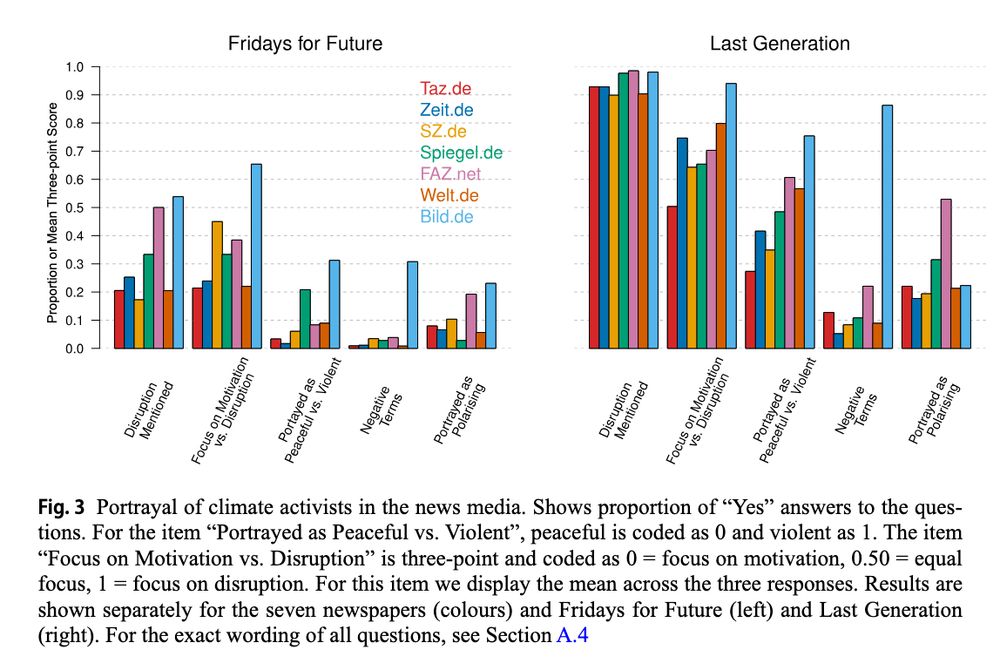
We found large differences between Fridays for Future and Last Generation, as well as large differences between newspapers.
More disruption → more negative coverage
More to the political right → more negative coverage
We used (& validated) GPT-4 as a tool to help us assess all 4,216 articles, which worked very well!
A substantial proportion of articles did not discuss risks & solutions, and there were large diff. between groups & newspapers.
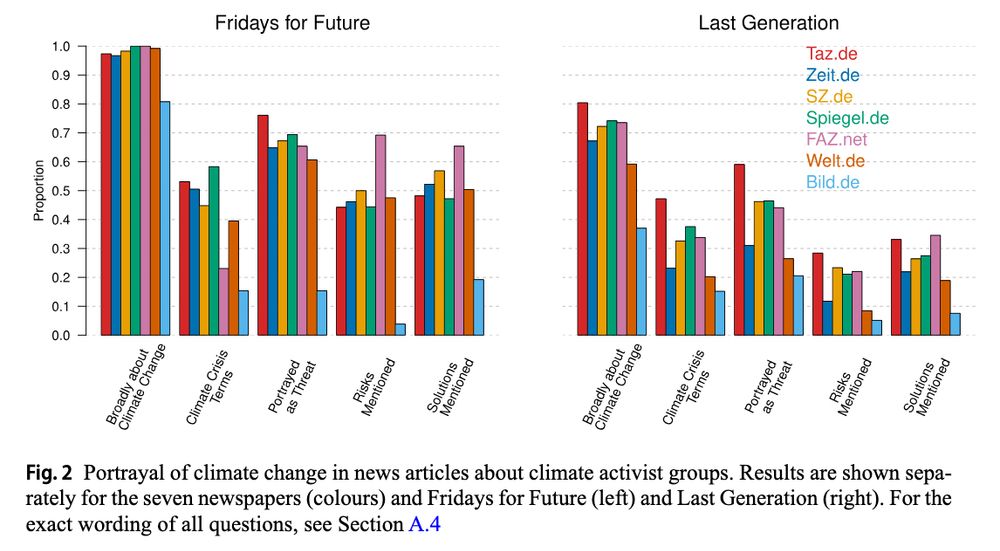
We used (& validated) GPT-4 as a tool to help us assess all 4,216 articles, which worked very well!
A substantial proportion of articles did not discuss risks & solutions, and there were large diff. between groups & newspapers.
We identified 4,216 articles that were mainly about Fridays for Future or Last Generation. Actions drive coverage!
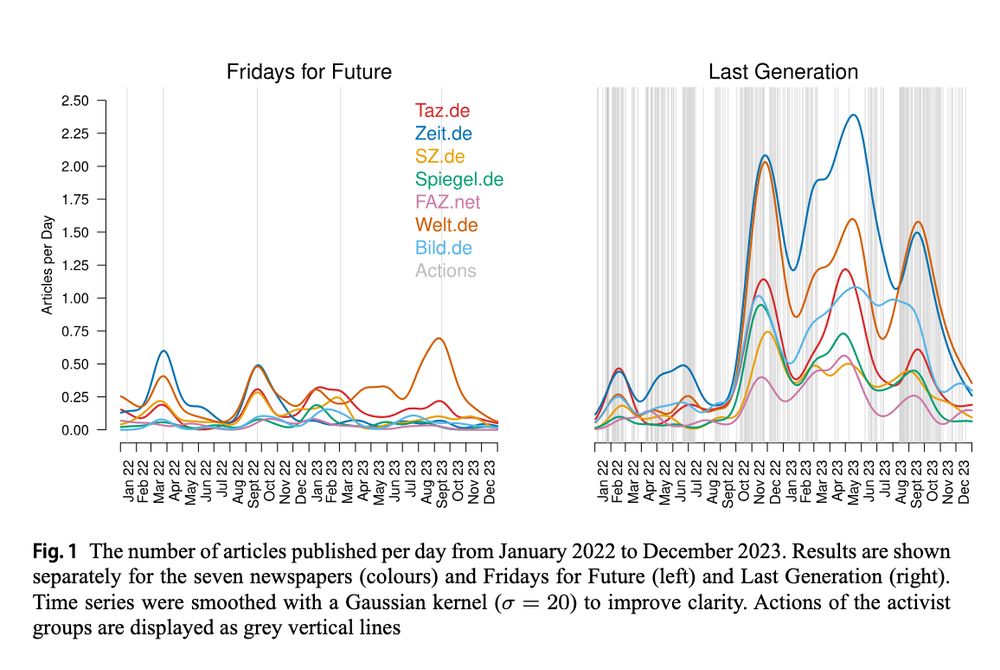
We identified 4,216 articles that were mainly about Fridays for Future or Last Generation. Actions drive coverage!
We used ChatGPT to answer these questions based on > 4,200 articles from seven major German newspapers: link.springer.com/article/10.1... w @jmbh.bsky.social & Simon Wimmer
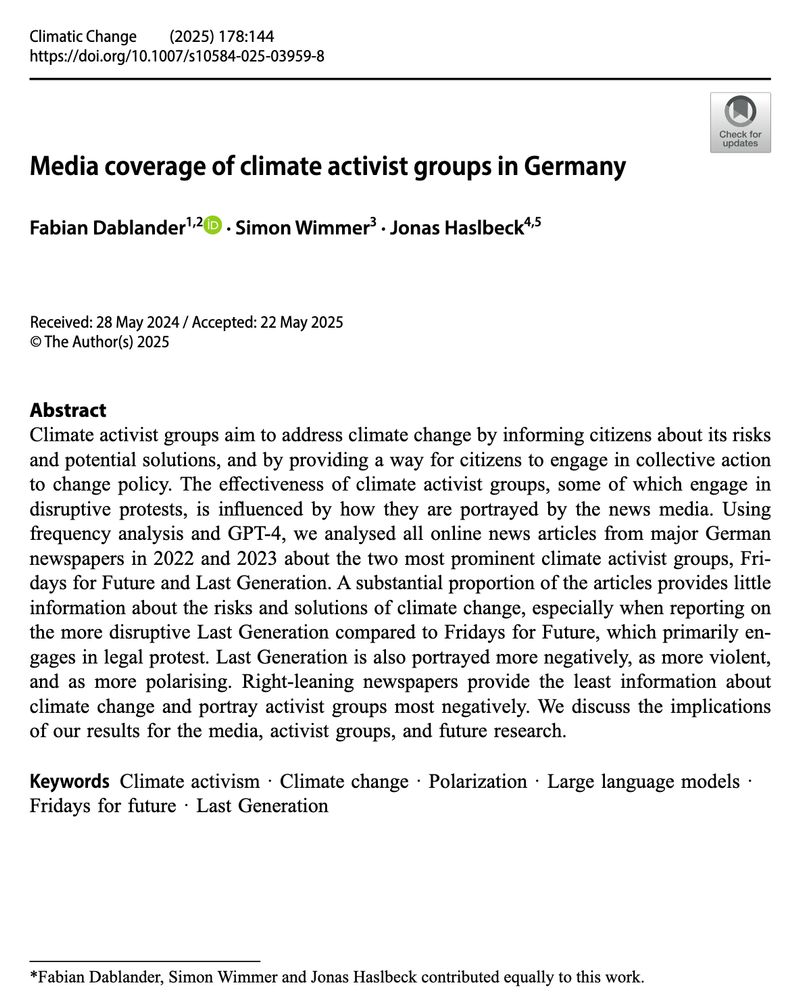
We used ChatGPT to answer these questions based on > 4,200 articles from seven major German newspapers: link.springer.com/article/10.1... w @jmbh.bsky.social & Simon Wimmer
This letter was a collaboration with the great Florian Lange, @cameronbrick.bsky.social, & @swaziadam.bsky.social.
You can find the authors' reply at www.pnas.org/doi/10.1073/...
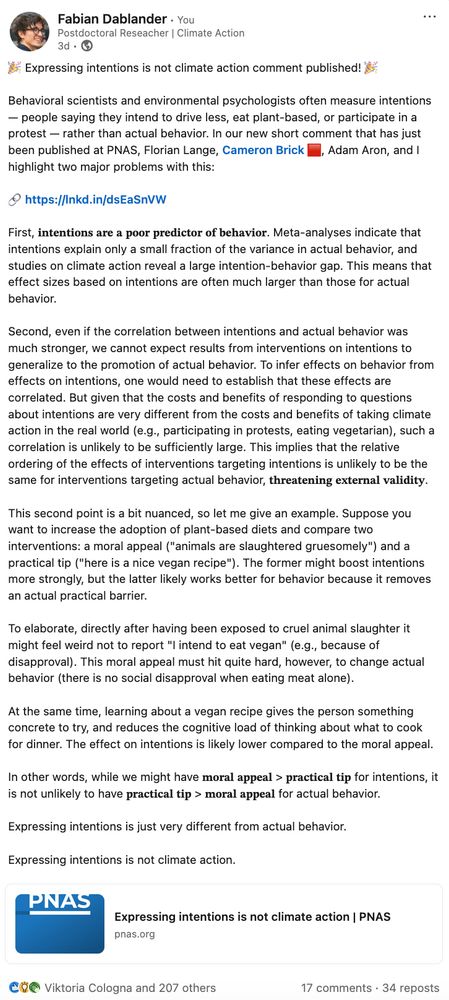
This letter was a collaboration with the great Florian Lange, @cameronbrick.bsky.social, & @swaziadam.bsky.social.
You can find the authors' reply at www.pnas.org/doi/10.1073/...
1) Intentions are poor predictors of behavior
2) Effects on intentions need not generalize to effects on behavior
We join calls for researchers to measure actual behavior: www.pnas.org/doi/10.1073/...
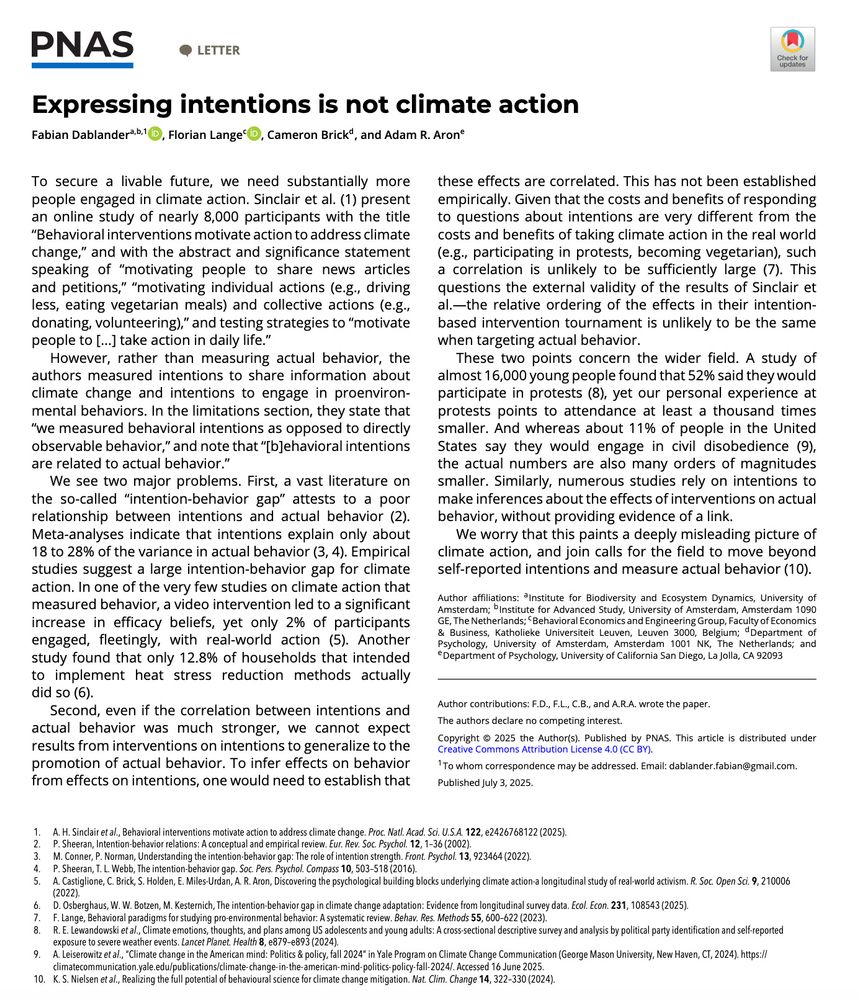
1) Intentions are poor predictors of behavior
2) Effects on intentions need not generalize to effects on behavior
We join calls for researchers to measure actual behavior: www.pnas.org/doi/10.1073/...
Organized w @swaziadam.bsky.social Dipti @berglundoscar.bsky.social @jksteinberger.bsky.social
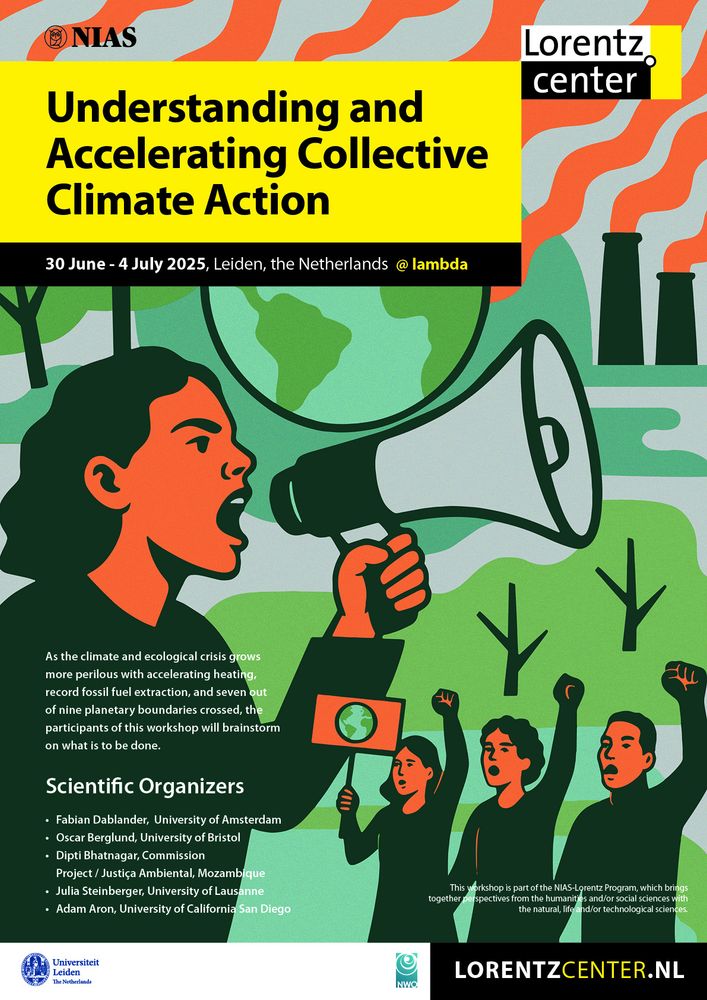
Organized w @swaziadam.bsky.social Dipti @berglundoscar.bsky.social @jksteinberger.bsky.social
I significantly updated my preprint, which using representative survey data from 142 countries (N=128,093) shows that climate hazard experience is related to higher climate risk perception. Now includes an exploration of country heterogeneity: osf.io/preprints/ps...
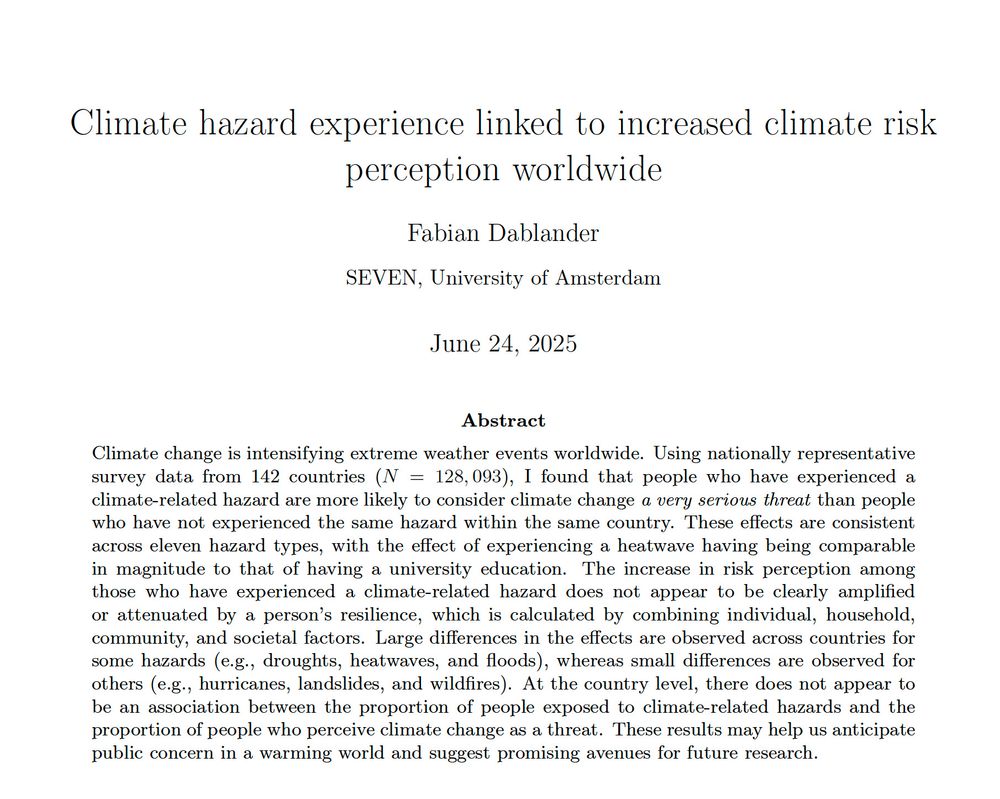
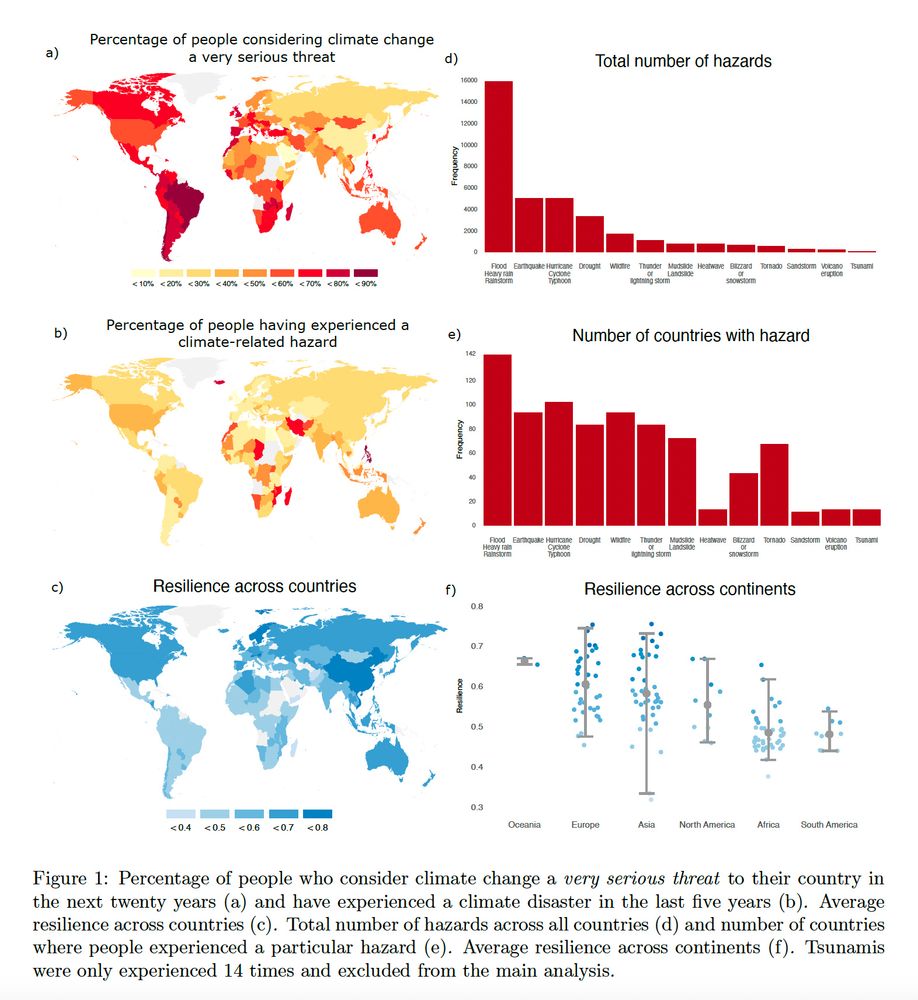
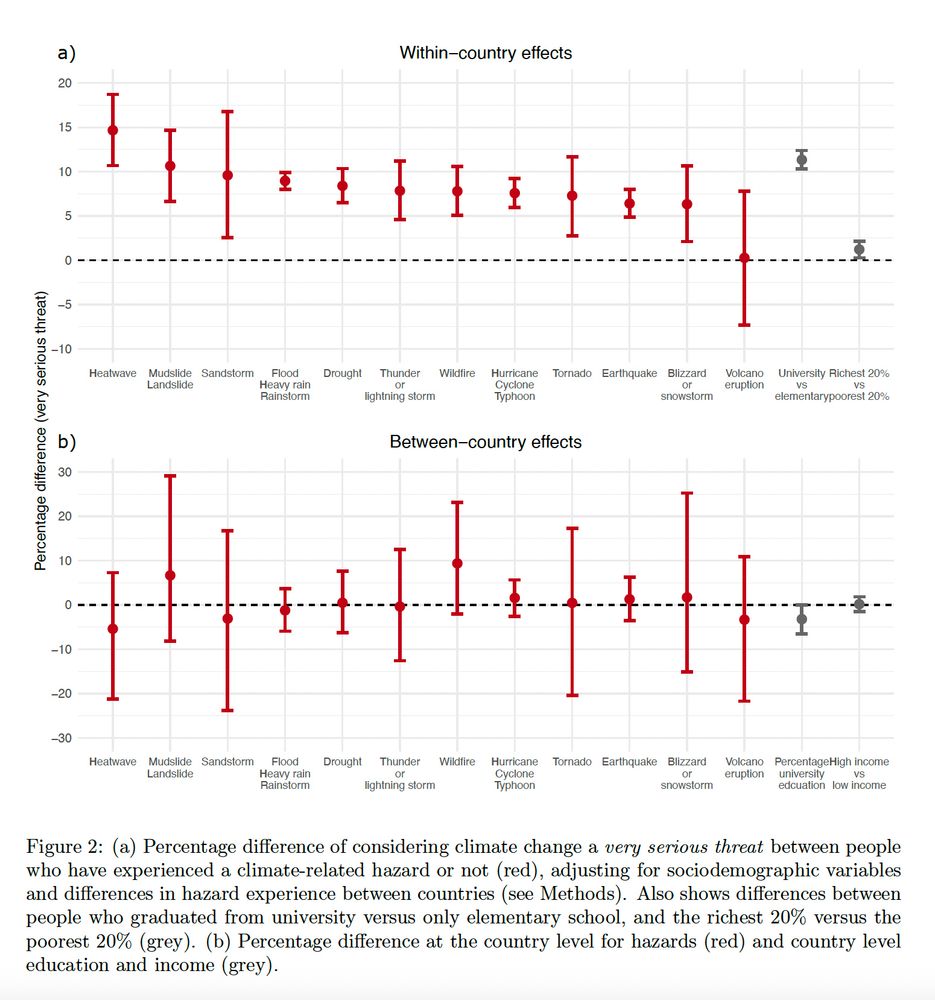
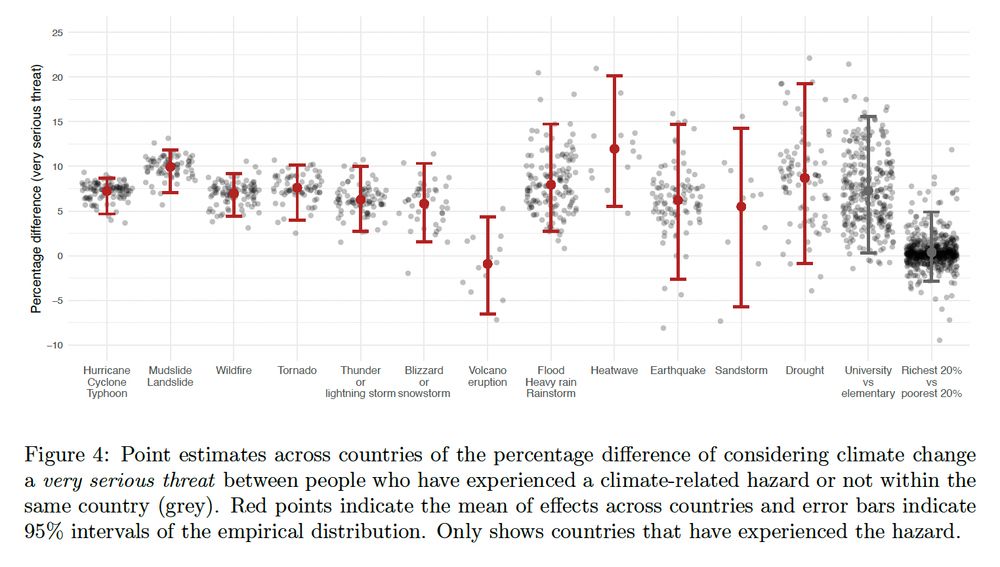
I significantly updated my preprint, which using representative survey data from 142 countries (N=128,093) shows that climate hazard experience is related to higher climate risk perception. Now includes an exploration of country heterogeneity: osf.io/preprints/ps...
📑 Slides: tinyurl.com/s6bkjrbv
🎥 Recording of a similar talk from 2023: tinyurl.com/yay564ks
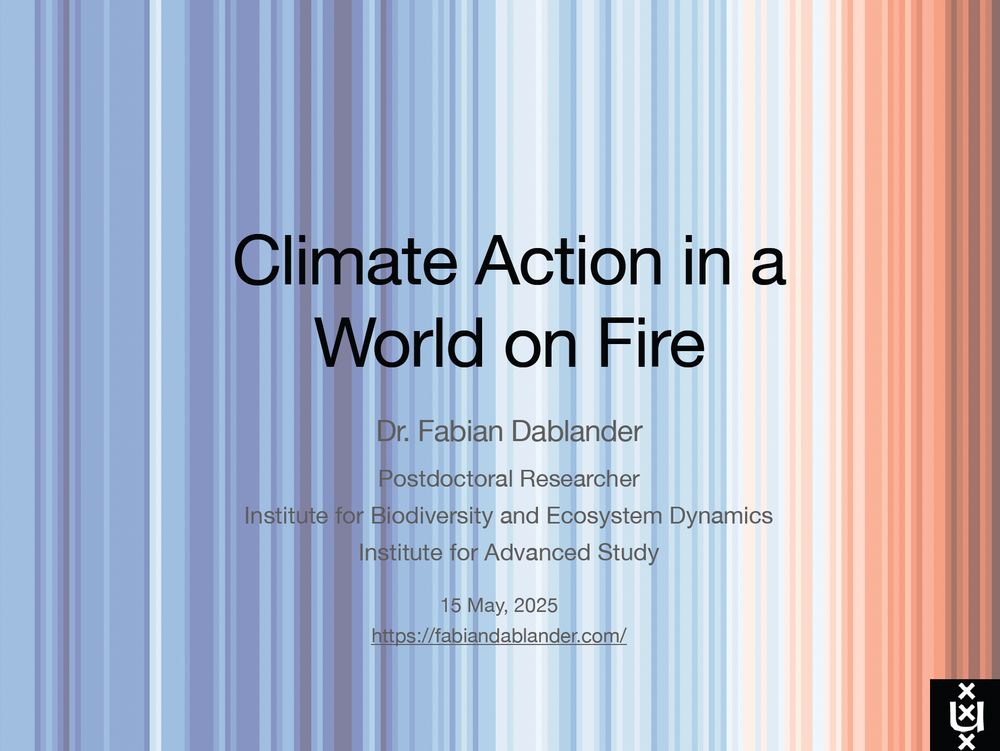
📑 Slides: tinyurl.com/s6bkjrbv
🎥 Recording of a similar talk from 2023: tinyurl.com/yay564ks

In behavioral science & environmental psychology, we often measure intentions — people saying they intend to drive less, eat plant-based, or join a protest — rather than actual behavior. There are two big problems with this: osf.io/preprints/ps... 🧵
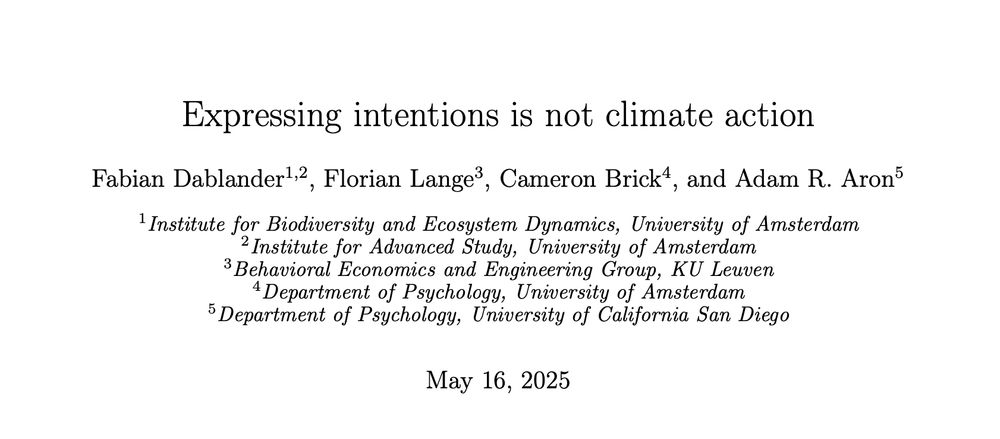
In behavioral science & environmental psychology, we often measure intentions — people saying they intend to drive less, eat plant-based, or join a protest — rather than actual behavior. There are two big problems with this: osf.io/preprints/ps... 🧵





